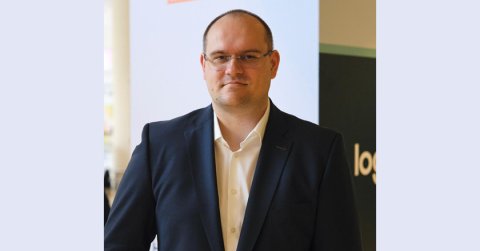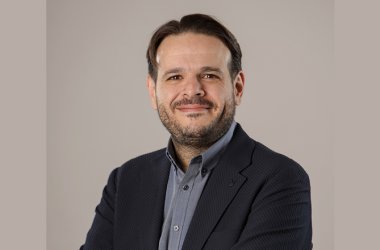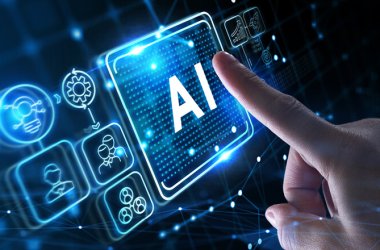
At GITEX 2025, Sergei Kostevitch, CTO, ASBIS, spoke to Veronica Martin about the company’s latest offerings: from 24/7 Robo Cafes and advanced cleaning robotics to pioneering waste-to-fuel technologies and a raft of rapid health diagnostics.
What are the latest solutions and innovations you are showing at GITEX 2025?
At this stage, we’re showcasing the Robo Cafe, which operates 24/7 without the need for on-site baristas. One of the biggest advantages is scale; companies can deploy it across multiple, even remote, locations. Currently, we can support setups like this with minimal maintenance; it only needs to be refilled or serviced once a day rather than several times.
Training requirements are also much simpler. Even someone as young as 18 can operate the system and start earning immediately, making it a great side hustle opportunity. So, while the cafe is ‘human-free’ in operation, it actually creates new job opportunities, allowing more people to earn work elsewhere.
We understand there are concerns about replacing jobs, but the reality is that baristas still have their place; no-one is taking away traditional roles. In fact, professional baristas often say they could make the coffee better, which is true. But can they work 24/7, year-round? That’s where the Robo Cafe excels.
As for locations, we’re planning to launch in Milan by November this year and will continue scaling. Production is also expanding to Dubai to meet growing demand in the Middle East. Currently, we have factories in Cyprus and Poland, and we focus on local production rather than outsourcing to China. It’s important for us to produce close to the markets we serve, ensuring quality, appreciation, and accessibility.
Can you share some insights into ASBIS Robotic Solutions and the unique value it brings?
ASBIS Robotic Solutions develops an all-in-one platform, combining both software and hardware. We also produce actuators – the motors that power humanoids, drones, and robotic arms. Some of these solutions are already being supplied to departments across Europe. Additionally, we are innovating in cleaning robotics for facility management, covering large locations like parking lots and expansive indoor spaces. For example, cleaning a 30,000-square-metre area manually is almost impossible to do perfectly, but our robots can manage it efficiently and consistently in a single run.
What sets ASBIS apart is our unique market insight. As a distributor, we constantly analyse and interact with the market across multiple regions. This allows us to identify gaps and opportunities. While we sell products from other brands, when we see a chance to improve or innovate, we develop our own solutions tailored to specific customer needs.
The same approach applies to our gaming solutions. While we distribute major brands like Razer, Logitech, and Cooler Master, we identified a missing link: engagement with the end customer. Simply buying a product often leaves the customer disconnected. We addressed this by building a platform that connects users directly to each product and fosters a community where gamers can share setups, tips, and experiences. This interactive approach not only strengthens customer relationships but also provides valuable feedback to help us enhance future products.
At ASBIS, our philosophy is simple: continuous interaction with customers drives better innovation, better products, and stronger engagement.
Looking ahead, what kind of solutions are you working on in terms of technological innovation?
The latest project we’ve been developing over the past two years focuses on converting all types of plastic back into petrol. We’ve been running test pilots in Cyprus and already have two successful test sites. Our final solution is now in the works and is expected to be operational by November, integrated with an existing petrol station. What’s exciting is that the system can process not only plastic but also rubber, dust, and general waste. Typically, these materials require sorting and cleaning, but our machine can handle everything together.
This innovation has multiple benefits: it significantly reduces environmental pollution by cleaning up plastic waste, eliminates associated health hazards, and is financially viable – unlike some competitors from Germany and Ukraine whose solutions were not economically sustainable. By analysing existing technologies, we decided to develop our own, creating a more practical and effective solution.
In addition to this, we’re working on rapid detection systems for salmonella. These allow for real-time testing on production lines using a small device powered by machine learning. What used to take an hour in a lab can now be done in five minutes, making production safer and more cost-effective. We’ve applied similar technology during COVID-19 for rapid PCR testing, achieving 95% accuracy in just five minutes.
Other areas of research include collagen growth and nerve regeneration, particularly for skin repair. We’re collaborating with companies on these projects, which have been in development for three years and are set to start sales this year. Through all our initiatives, we continually explore new fields to create solutions that are innovative, practical, and impactful.
Image Credit: ASBIS





